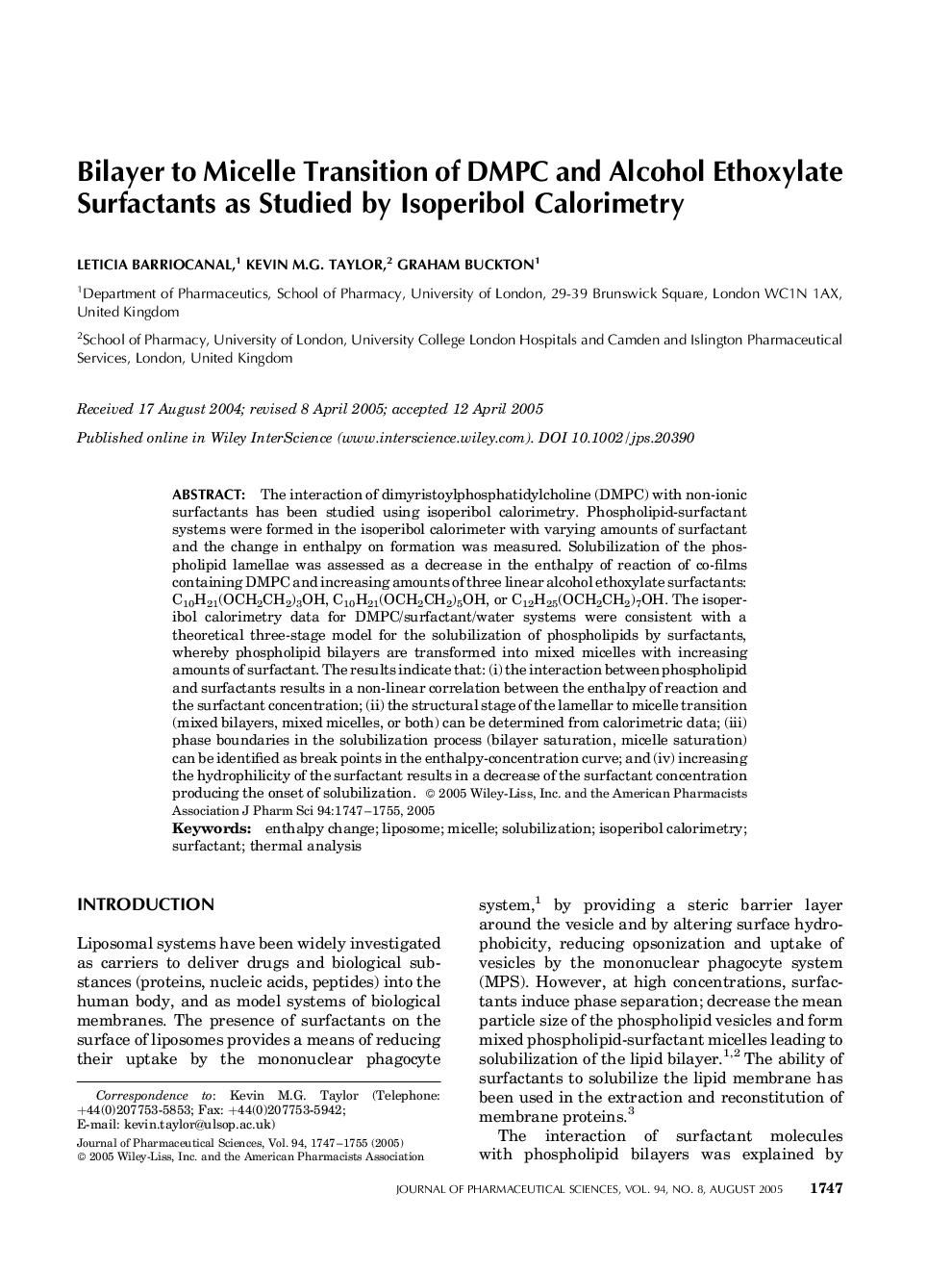| Article ID | Journal | Published Year | Pages | File Type |
|---|---|---|---|---|
| 8994809 | Journal of Pharmaceutical Sciences | 2005 | 9 Pages |
Abstract
The interaction of dimyristoylphosphatidylcholine (DMPC) with non-ionic surfactants has been studied using isoperibol calorimetry. Phospholipid-surfactant systems were formed in the isoperibol calorimeter with varying amounts of surfactant and the change in enthalpy on formation was measured. Solubilization of the phospholipid lamellae was assessed as a decrease in the enthalpy of reaction of co-films containing DMPC and increasing amounts of three linear alcohol ethoxylate surfactants: C10H21(OCH2CH2)3OH, C10H21(OCH2CH2)5OH, or C12H25(OCH2CH2)7OH. The isoperibol calorimetry data for DMPC/surfactant/water systems were consistent with a theoretical three-stage model for the solubilization of phospholipids by surfactants, whereby phospholipid bilayers are transformed into mixed micelles with increasing amounts of surfactant. The results indicate that: (i) the interaction between phospholipid and surfactants results in a non-linear correlation between the enthalpy of reaction and the surfactant concentration; (ii) the structural stage of the lamellar to micelle transition (mixed bilayers, mixed micelles, or both) can be determined from calorimetric data; (iii) phase boundaries in the solubilization process (bilayer saturation, micelle saturation) can be identified as break points in the enthalpy-concentration curve; and (iv) increasing the hydrophilicity of the surfactant results in a decrease of the surfactant concentration producing the onset of solubilization.
Keywords
Related Topics
Health Sciences
Pharmacology, Toxicology and Pharmaceutical Science
Drug Discovery
Authors
Leticia Barriocanal, Kevin M.G. Taylor, Graham Buckton,
